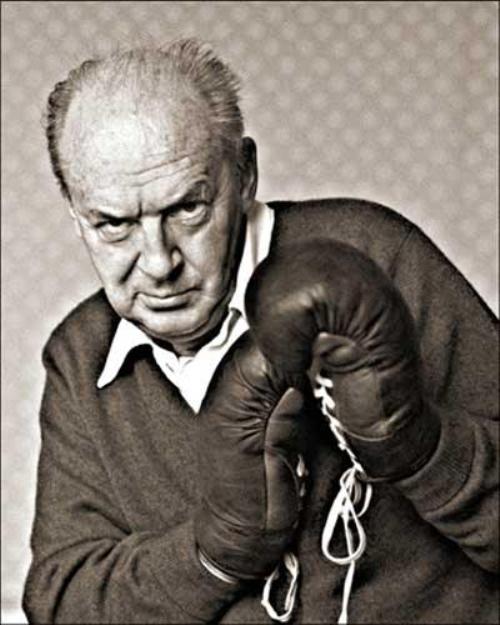
Ich war in großer Verlegenheit: eine dringende Reise stand mir bevor; ein Schwerkranker wartete auf mich in einem zehn Meilen entfernten Dorfe; starkes Schneegestöber füllte den weiten Raum zwischen mir und ihm; einen Wagen hatte ich, leicht, großräderig, ganz wie er für unsere Landstraßen taugt; in den Pelz gepackt, die Instrumententasche in der Hand, stand ich reisefertig schon auf dem Hofe; aber das Pferd fehlte, das Pferd. Mein eigenes Pferd war in der letzten Nacht, infolge der Überanstrengung in diesem eisigen Winter, verendet; mein Dienstmädchen lief jetzt im Dorf umher, um ein Pferd geliehen zu bekommen; aber es war aussichtslos, ich wußte es, und immer mehr vom Schnee überhäuft, immer unbeweglicher werdend, stand ich zwecklos da. Am Tor erschien das Mädchen, allein, schwenkte die Laterne; natürlich, wer leiht jetzt sein Pferd her zu solcher Fahrt? Ich durchmaß noch einmal den Hof; ich fand keine Möglichkeit; zerstreut, gequält stieß ich mit dem Fuß an die brüchige Tür des schon seit Jahren unbenützten Schweinestalles. Sie öffnete sich und klappte in den Angeln auf und zu. Wärme und Geruch wie von Pferden kam hervor. Eine trübe Stallaterne schwankte drin an einem Seil. Ein Mann, zusammengekauert in dem niedrigen Verschlag, zeigte sein offenes blauäugiges Gesicht. » Soll ich anspannen?« fragte er, auf allen vieren hervorkriechend. Ich wußte nichts zu sagen und beugte mich nur, um zu sehen, was es noch in dem Stalle gab. Das Dienstmädchen stand neben mir. »Man weiß nicht, was für Dinge man im eigenen Hause vorrätig hat«, sagte es, und wir beide lachten. »Holla, Bruder, holla, Schwester!« rief der Pferdeknecht, und zwei Pferde, mächtige flankenstarke Tiere, schoben sich hintereinander, die Beine eng am Leib, die wohlgeformten Köpfe wie Kamele senkend, nur durch die Kraft der Wendungen ihres Rumpfes aus dem Türloch, das sie restlos ausfüllten. Aber gleich standen sie aufrecht, hochbeinig, mit dicht ausdampfendem Körper. »Hilf ihm«, sagte ich, und das willige Mädchen eilte, dem Knecht das Geschirr des Wagens zu reichen. Doch kaum war es bei ihm, umfaßt es der Knecht und schlägt sein Gesicht an ihres. Es schreit auf und flüchtet sich zu mir; rot eingedrückt sind zwei Zahnreihen in des Mädchens Wange. »Du Vieh«, schreie ich wütend, »willst du die Peitsche?«, besinne mich aber gleich, daß es ein Fremder ist, daß ich nicht weiß, woher er kommt, und daß er mir freiwillig aushilft, wo alle andern versagen. Als wisse er von meinen Gedanken, nimmt er meine Drohung nicht übel, sondern wendet sich nur einmal, immer mit den Pferden beschäftigt, nach mir um. »Steigt ein«, sagt er dann, und tatsächlich: alles ist bereit. Mit so schönem Gespann, das merke ich, bin ich noch nie gefahren, und ich steige fröhlich ein. »Kutschieren werde aber ich, du kennst nicht den Weg«, sage ich.














